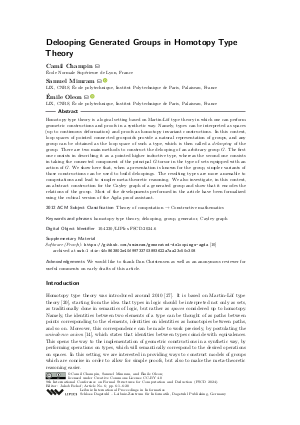LIPIcs.FSCD.2024.6.pdf
- Filesize: 0.75 MB
- 20 pages

 Creative Commons Attribution 4.0 International license
Creative Commons Attribution 4.0 International license








Feedback for Dagstuhl Publishing